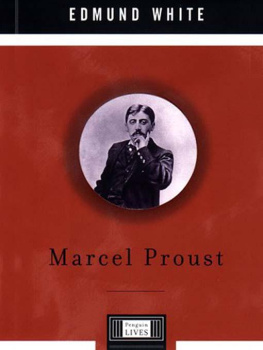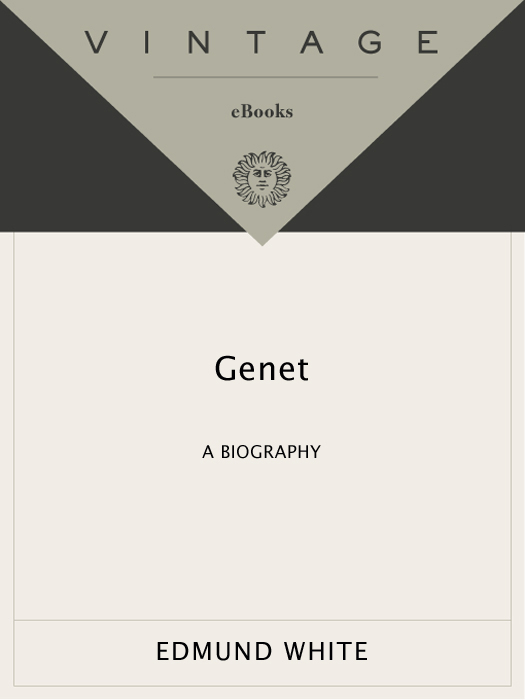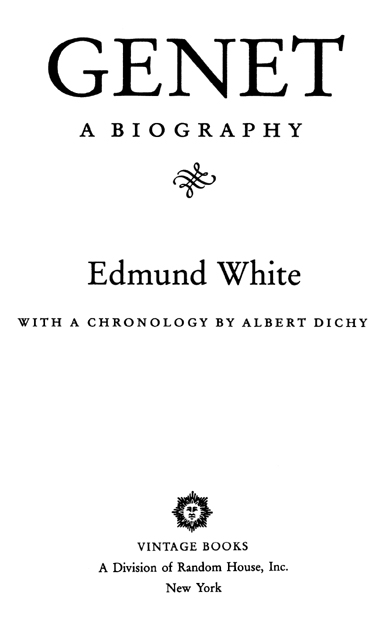Edmund White - Genet: A Biography
Here you can read online Edmund White - Genet: A Biography full text of the book (entire story) in english for free. Download pdf and epub, get meaning, cover and reviews about this ebook. year: 2010, publisher: Vintage, genre: Detective and thriller. Description of the work, (preface) as well as reviews are available. Best literature library LitArk.com created for fans of good reading and offers a wide selection of genres:
Romance novel
Science fiction
Adventure
Detective
Science
History
Home and family
Prose
Art
Politics
Computer
Non-fiction
Religion
Business
Children
Humor
Choose a favorite category and find really read worthwhile books. Enjoy immersion in the world of imagination, feel the emotions of the characters or learn something new for yourself, make an fascinating discovery.

- Book:Genet: A Biography
- Author:
- Publisher:Vintage
- Genre:
- Year:2010
- Rating:4 / 5
- Favourites:Add to favourites
- Your mark:
Genet: A Biography: summary, description and annotation
We offer to read an annotation, description, summary or preface (depends on what the author of the book "Genet: A Biography" wrote himself). If you haven't found the necessary information about the book — write in the comments, we will try to find it.
Moving from Genets illegitimate birth in 1910 to his foster childhood in a farming village in central France, Edmund White explores the early milieu that transformed an inherently theatrical child into a petty criminal and prodigiously original writer, whose most startling creation may have been his invention of himself. Accused of stealing and running away, Genet was sent to reform school at Mettray, where his imagination flourished under the spell of an all-male communal life and his first homosexual experiences. In the 1930s, he deserted from the army and travelled in Europe as a vagabond, prostitute and thief, always on the lam from the police and the military. In 1942, he emerged from one of several prison stays with the first of his remarkable novels, Our Lady of the Flowers. It was admired by Cocteau, who undertook to get it published and interceded with the French authorities to keep its author out of prison. White shows us how Cocteau thrust the marvelous, mysterious, intolerable Genet into the heart of literary Paris, where he enjoyed a curious celebrity as great writer and petty thief, was painted by Giacometti (from whom he stole) and was canonized by Sartre in his monumental study, Saint Genet.
By 1948, Genet had produced five highly original novels. In the mid-1950s, after several years of debilitating depression, he turned to the writing of plays, of which The Balcony, The Blacks and The Screens were immediately hailed as masterpieces. Despite his ambivalence about political movements, he supported the Paris student uprising in 1968 and turned up -- as a journalist -- at the Democratic National Convention in Chicago. In 1970, he became a spokesman for the Black Panthers, but in his last decade he immersed himself -- politically and aesthetically -- in the Arab world, championing the struggle for a Palestinian homeland and writing his last, posthumously published book, Prisoner of Love.
Edmund White explores the perverse extremes of Genets life and separates the facts from the mythology that Genet himself fashioned. Drawing on interviews with Genets friends, lovers, publishers and acquaintances, and using new material from correspondence, journals, police records, psychiatric reports and other original sources, White reveals a life animated by contradictory impulses: authenticity and dissembling, fidelity and flirtation, domination and submission, honor and betrayal. Throughout, he brilliantly interprets and appraises Genets astonishing oeuvre, reading the fiction with the focussed attention of a novelist and opening up the dense invention of the plays. His masterful and intuitive biography fully illuminates a hitherto enigmatic literary genius.
Edmund White: author's other books
Who wrote Genet: A Biography? Find out the surname, the name of the author of the book and a list of all author's works by series.











